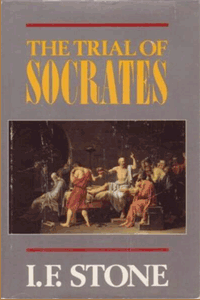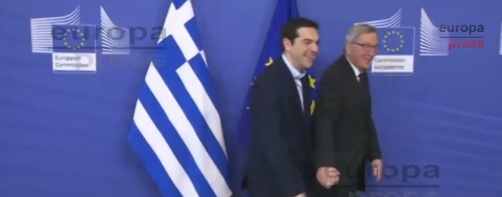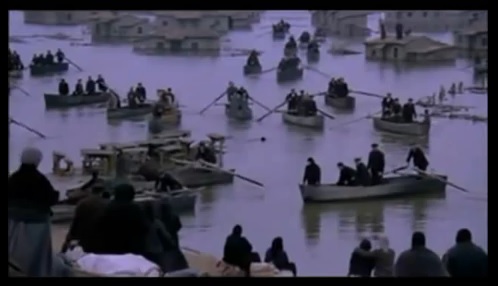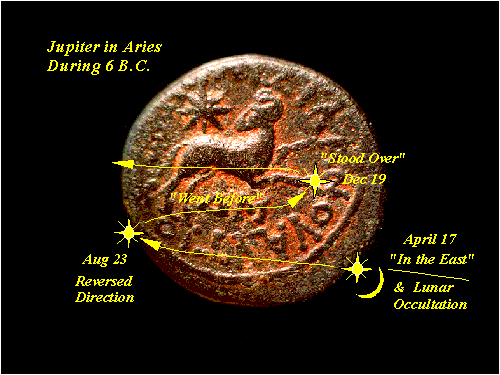Listening to Markopoulos, Ta tragoudia tou neou patera
My correspondent from Amsterdam called in distress: Wolfgang Streeck of the Max Planck Institute had spoken about the end of capitalism, and claimed that no-one has an idea how to solve this.
Streeck had an interview (in Dutch) by the formidable Caroline de Gruyter, and a video interview (in English) with weblog Follow The Money. A good read is “How will Capitalism End?” in the New Left Review 87, May-June 2014. It seems that Streeck and I agree on much, except on the presence or lack of solution approaches. (Dutch readers will also benefit much from Michel Verbeek on the German Ordoliberalismus and the balanced budget rule for the euro.)
There is the book “Buying Time. The delayed crisis of democratic capitalism” 2014.
I don’t have to read the latter book since I have been studying this problem since I started studying econometrics in 1973 and solved it at the Dutch Central Planning Bureau (CPB) in 1990. The crisis since 2007 merely confirms my analysis. What is required, is to boycott Holland till the censorship of economic science at CPB is lifted and I can present my full analysis. See:
- the About page above (and my books DRGTPE and CSBH)
- the article “Cause and cure of the crisis“ (2014)
- the memo “An Economic Supreme Court” (2014) in the Newsletter of the UK Royal Economic Society.
It seems to me that professor Streeck neglects – and correct me if I am wrong – that economic advice and in particular also economic planning are integral functions within the government of the modern state. To understand economic developments you also have to study the workings of that function. Economists who work in such functions are not per definition sadistically inclined, and rather follow the major economic science of their day. This is where my innovative contribution lies, that is censored by the directorate of the Dutch Central Planning bureau, and which this weblog on the advice to boycott Holland is all about. Two points are relevant here:
- some novel contributions to economic analysis, to improve economic science
- the advice to amend the Trias Politica structure with an Economic Supreme Court, such that economic advice and planning can be truly scientific – rather than being embedded within political processes as is the case nowadays.
What the reader should appreciate is that professor Streeck – like I do – considers the developments since 1970. Indeed, you can only appreciate what is happening when you take the longer view. For example: the years of Reagan and Thatcher were actually Keynesian years 1981-2007. Link up to World War I for the failure of the Trias Politica.
In “How will Capitalism End?” Streeck states:
“The image I have of the end of capitalism—an end that I believe is already under way—is one of a social system in chronic disrepair, for reasons of its own and regardless of the absence of a viable alternative. While we cannot know when and how exactly capitalism will disappear and what will succeed it, what matters is that no force is on hand that could be expected to reverse the three downward trends in economic growth, social equality and financial stability and end their mutual reinforcement. In contrast to the 1930s, there is today no political-economic formula on the horizon, left or right, that might provide capitalist societies with a coherent new regime of regulation, or régulation. Social integration as well as system integration seem irreversibly damaged and set to deteriorate further. [ftnt] What is most likely to happen as time passes is a continuous accumulation of small and not-so-small dysfunctions; none necessarily deadly as such, but most beyond repair, all the more so as they become too many for individual address. In the process, the parts of the whole will fit together less and less; frictions of all kinds will multiply; unanticipated consequences will spread, along ever more obscure lines of causation. Uncertainty will proliferate; crises of every sort—of legitimacy, productivity or both—will follow each other in quick succession while predictability and governability will decline further (as they have for decades now). Eventually, the myriad provisional fixes devised for short-term crisis management will collapse under the weight of the daily disasters produced by a social order in profound, anomic disarray.” (Wolfgang Streeck, “How will Capitalism End?” 2014)
We may imagine that major parts of Europe (Amsterdam) and the USA will start to look like parts of Syria and/or the Philippines.
There are two important observations:
- Professor Streeck will think that Holland is an open minded country, especially when they are so nice to give him all this attention. In this way he will not observe the closed Dutch mind. Nobody will tell him about the censorship of economic since since 1990 and the need to boycott Holland till that is resolved. Professor Streeck visited Holland and left it again, still thinking that no-one has any idea for a solution, while that solution has already been developed and the Dutch CPB (and put into a drawer).
- A google also showed a book by Streeck and Thelen, “Beyond continuity : institutional change in advanced political economies” (2005). It so happens that I sent this email to professor Thelen in 2013. Did she read it, comprehend it, and communicate it to Streeck ? The email mentions Gerrit Zalm who as CEO of ABN AMRO came up in our last weblog discussion on bank bonuses. It is a small world – and a small country.
Addition April 11
Some other websites on professor Streeck’s analysis – who all lack the notion of an Economic Supreme Court:
- The Current Moment, by Philip Mader of Government Across Borders, with people of the Max Planck institute itself again
- Mr Liu’s Opinions, economic weblogger, who e.g. points to the difference between the USA and the Eurozone
- Renewal magazine, interview by Oxford historian Ben Jackson
- The European Institute of Columbia university, with a book talk video
- For Dutch readers there is also the exchange of views between economist Bas Jacobs and novelist Arnon Grunberg





















